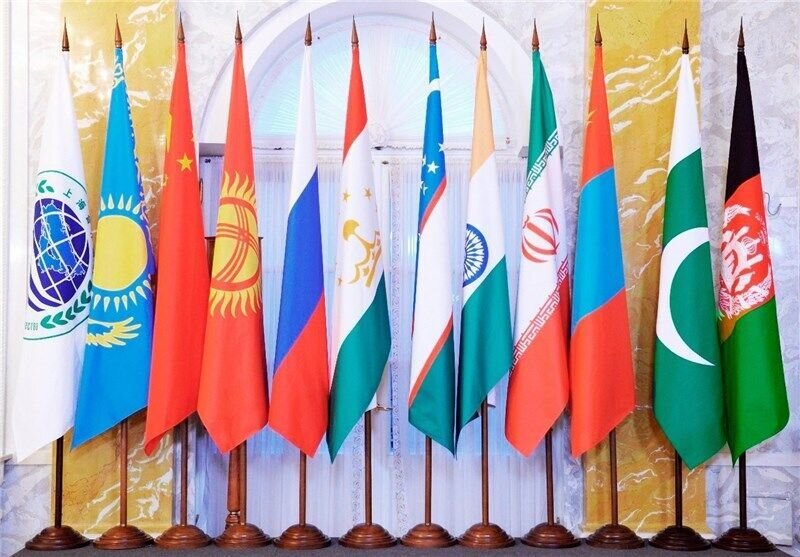Iran and the SCO: A measured turn in Asian geopolitics

MADRID – The 25th Summit of the Shanghai Cooperation Organization (SCO), held in Tianjin, China, marks a significant moment for Iran and its regional strategy.
Having become a full member in 2024 during the presidency of the late Ebrahim Raisi, Iran now stands consolidated within a forum that is reshaping the balance of power in Eurasia. Despite sanctions and Western pressure, Iran has found in the SCO a platform to expand its economic horizons, strengthen its political influence, and improve its security outlook.
The SCO, with founding members such as China, Russia, India, and Pakistan alongside the Central Asian states, operates as a coalition without absolute hegemony, privileging pragmatism and shared interests over rigid ideological alignments. Iran’s full admission—delayed for years due to UN Security Council sanctions—also reflects the members’ willingness to extend the organization’s influence into West Asia, turning Iran into a bridge between East and West. Its active participation in the forum is therefore not only diplomatic, but also economic and strategic in nature.
Economy: Opportunity and challenge
From an economic perspective, Iran faces a complex environment. On the one hand, SCO membership opens doors to investment and trade in strategic sectors such as energy, infrastructure, and technology, particularly with China and Russia. Participation in flagship projects such as the Belt and Road Initiative positions Iran as a critical hub in Eurasian trade routes, enhancing land and maritime connections that can mitigate some of the constraints imposed by Western blockades and sanctions.
Iran’s abundant natural resources, particularly oil and gas, can further attract investment and reinforce its role as an energy supplier within the bloc. Yet this opportunity also requires internal adjustments: improving the business climate, modernizing infrastructure, and ensuring macroeconomic stability. Access alone does not guarantee results; Iran must enhance its capacity to leverage these openings and integrate effectively into multilateral economic initiatives.
In addition, SCO-backed cooperation in renewable energy, within the framework of sustainable development, offers another field of expansion. By aligning its environmental policies with global demand and harnessing the technological strengths of partners like China, Iran can diversify its economy and overcome structural constraints, provided this process is supported by effective governance and a long-term strategic vision.
Politics and security: A pragmatic bloc
Politically, the SCO emphasizes mutual respect and national sovereignty—principles that resonate strongly with Iran. The Tianjin summit reaffirmed this stance, including a joint condemnation of Israeli aggressions, particularly those targeting Iranian territory, which destabilize the region. This political solidarity, even if not unanimous on all issues, provides Tehran with valuable diplomatic backing against a hostile Western bloc.
On the security front, Iran uses the forum to enhance counterterrorism coordination and address transnational challenges such as extremism and drug trafficking, especially in Central Asia and West Asia. The SCO is not a military alliance nor a collective defense pact, a format that benefits Iran by enabling cooperation without compromising autonomy. Partnerships with Russia and China in these areas amplify Iran’s ability to shape conflict dynamics while maintaining sovereign decision-making.
It is also worth noting the pragmatic rapprochement between China and India—traditional rivals—within the SCO framework, partly as a response to U.S. tariffs and protectionist policies under Donald Trump. This shift broadens trade and cooperation opportunities for all members, including Iran, which sees in this evolving relationship a chance to deepen access to Asian markets and strengthen its geopolitical integration.
Flexible multipolarity without rhetoric
It is important to stress that the SCO’s multilateralism is not a monolithic anti-Western bloc nor a closed coalition. In contrast to simplistic or propagandistic interpretations, the organization brings together states with varied political systems, diverse economic interests, and different strategic priorities. For Iran, this format is advantageous, allowing it to secure concrete benefits without diluting its identity.
Tehran demonstrates a pragmatic diplomacy, balancing resistance to external pressures with the pursuit of functional alliances and agreements. This delicate equilibrium enables Iran to advance its interests without being drawn into direct confrontations or dependency that could undermine national prerogatives.
At the same time, the SCO continues to serve as a forum for regional cooperation, joint development, and stability—functions of special relevance today for states like Iran, navigating between international pressures and pressing domestic imperatives.
Challenges and the future
Iran’s membership in the SCO is a strategic step of great scope, opening new avenues of cooperation and consolidating its role as a key actor in Eurasia. The expansion of the forum, with states of diverse profiles and priorities, naturally calls for coordination of interests and flexible mechanisms of dialogue. Here, Iran can draw on its diplomatic experience to serve as a bridge between different positions, reinforcing its influence on the regional agenda.
Far from being an obstacle, the diversity of the bloc represents an opportunity for Tehran to project its political initiative and strengthen economic ties with strategic partners. The SCO provides a privileged space to expand trade routes, attract investment, promote infrastructure projects, and consolidate energy alliances that enhance Iran’s resilience and self-sufficiency in the face of external pressures.
Geopolitically, Iran’s participation should not be understood only in defensive terms. On the contrary, it allows the country to play a constructive role in shaping common projects that contribute to development, security, and stability in the region. Iran’s commitment to deeper integration in Eurasia—without renouncing its independence or strategic identity—places it in a unique position: to actively contribute to building a more balanced multipolar order, reflective of today’s realities.
